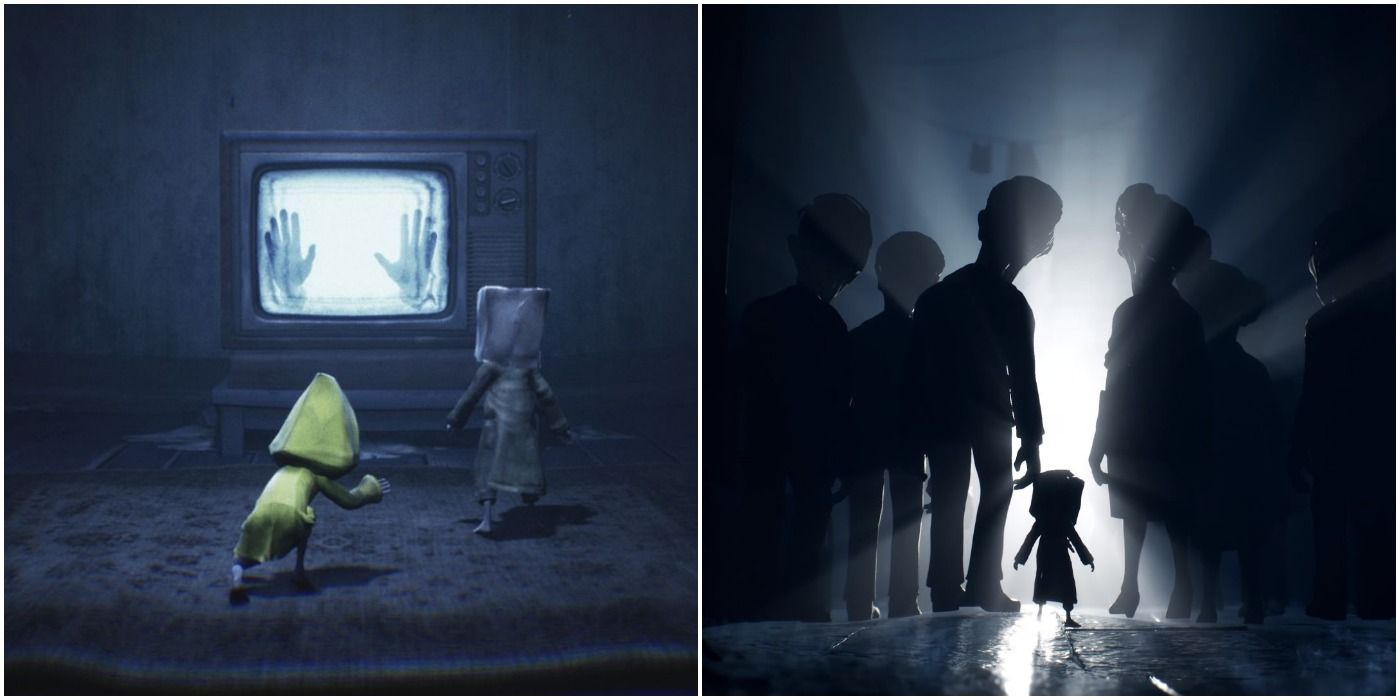
Everything in Little Nightmares 2 is intentional, and almost everything has a message to be deciphered. All the rooms, characters, and items have stories to tell that add to the game's plot.
RELATED: Little Nightmares 2: All Collectibles & Missable Achievements/Trophies – Chapter 4
Some of these connect the two games, others expand the plot, but they're all a window into the minds of the creators. Most players who love this horror game, love it for the complexity of the plot. And because there are no monologues except for the adorable "hi" and "hey" of the characters, the story needs to be told through little details in the environment.
SPOILERS AHEAD!
10 The Theme
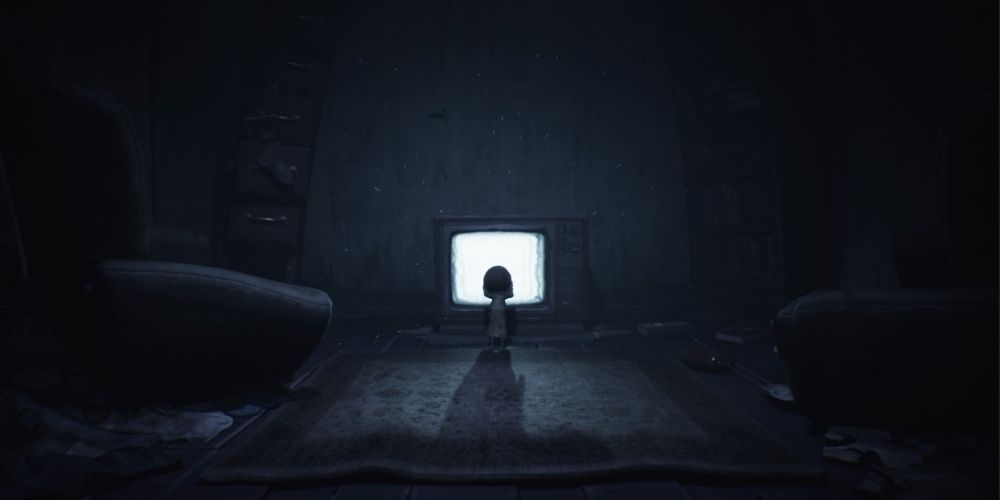
The theme of Little Nightmares 2 is escapism. This is shown mostly by the brainwashing of the TVs, making all occupants of the city faceless zombie-like humanoids. The creators also use escapism as a way to unfold the nature of the characters.
The way Six was engulfed by the music box, making it her own escape from the world she's stuck in, shows a new side of her, which players have never seen before. The creators shared the idea of the theme in an interview: "Everything with Little Nightmares is taken from the world around us - we look around asking 'how do we feel about this now, how does that feed into the theme we want to explore, how does that manifest in these characters and these awful residents?'"
9 The Monsters
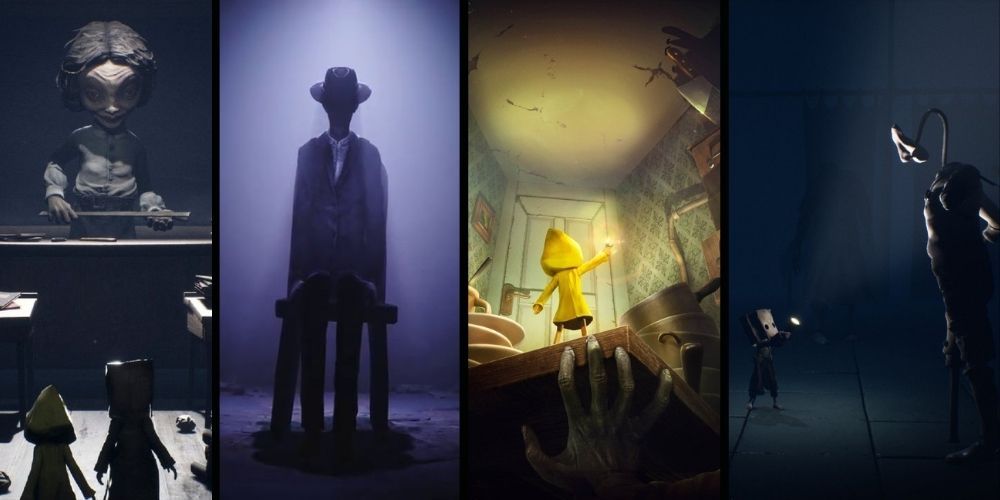
There are a lot of different monsters in Little Nightmares 2. There's a teacher, a hunter, a doctor, children, and the Thin Man, giving players a much more colorful look at the world they're in.
RELATED: 10 Best Horror Game Boss Fights
Each monster has a different background, and people could discuss the meaning of them for hours on end. The one thing that's consistent throughout the game is their raw, animal-like primitiveness. These humanoids are all ignorant, and they're all extremely aggressive towards their environment. The Hunter kills and stuffs everything in sight. The Teacher is an extreme authority in the school, and The Doctor is brutal. Everything they do was twisted out of proportion, taken to an inhuman level, showing the raw aggression behind all of these characters. This is a loud message in the game and plays a big part in the entire plot.
8 The Music Box
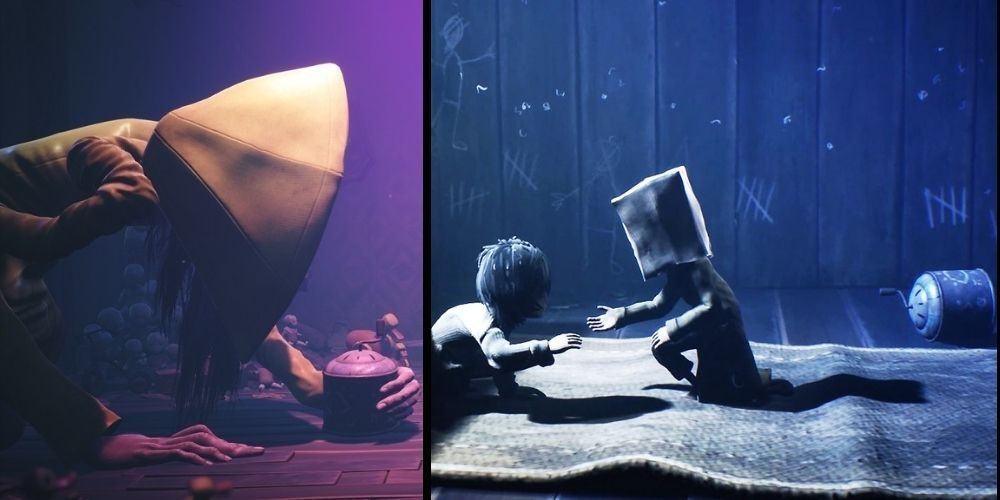
The music box is something that is not consistently present throughout the game but is pivotal in the plot. The music this box plays connects to the first game where Six hums the same tune. This song is most likely her coping mechanism in an ocean of traumatic events.
Six is first seen with it in the first scene when Mono helps her escape from The Hunter. As Giant Six, she's listening to the box just as in the beginning but seems to be engulfed by it, addicted. In the end, after she betrays Mono, she hums it while escaping the city. In the first game, this exact tune is known as "Six's theme," because she hums it so often.
7 Connection To The Maw
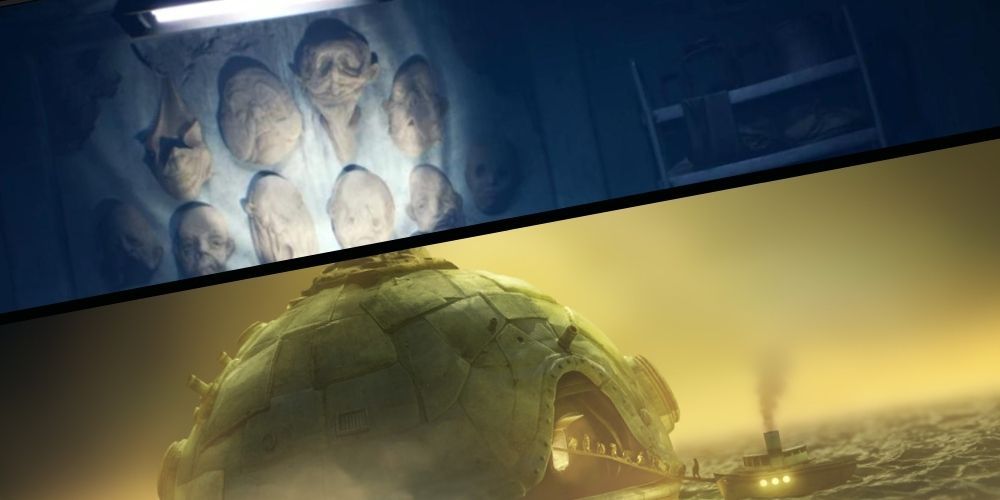
Little Nightmares 2 is filled with hints to the first game, helping fans put together the timeline and full story. In the second game, Mono stumbles into a room that has a painting of The Lady and a porcelain doll that he can break just as Six breaks them in the first game.
At one point, Mono sees a wall full of masks that are familiar from the first game. These masks are worn by the deformed humanoids, but here, they're just being created and prepared. The myriad of portraits is also very important. For instance, a portrait of The Teacher can be found in the first game. And the most important hints are the ones directly connected to The Maw. There are ads of The Maw everywhere, briefcases, and more. There are crowds on the street, seemingly waiting in line for something (maybe boarding the ship to the maw?), and behind Giant Six, players can discover the same exact briefcase she starts out in in the first game.
6 Hangin Man And Bell Boy In The First Game
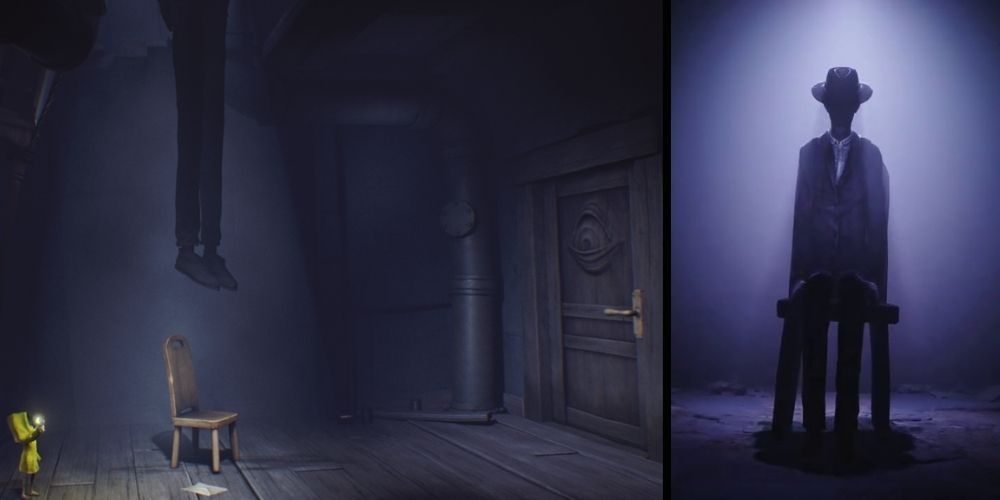
A huge part of the messages in the game are shadows and shadow-figures. In Little Nightmares 2, Mono standing in front of the TV casts a shadow behind him that looks a lot like the Bellman in the first game.
Also, the infamous hanging man from the beginning of the first game looks frighteningly like Thin Man and is found above the same stool, looking at a very familiar doorway. These all hint towards the tragic ending of Mono's story. The question is, will the creators save him from this doom?
5 TVs
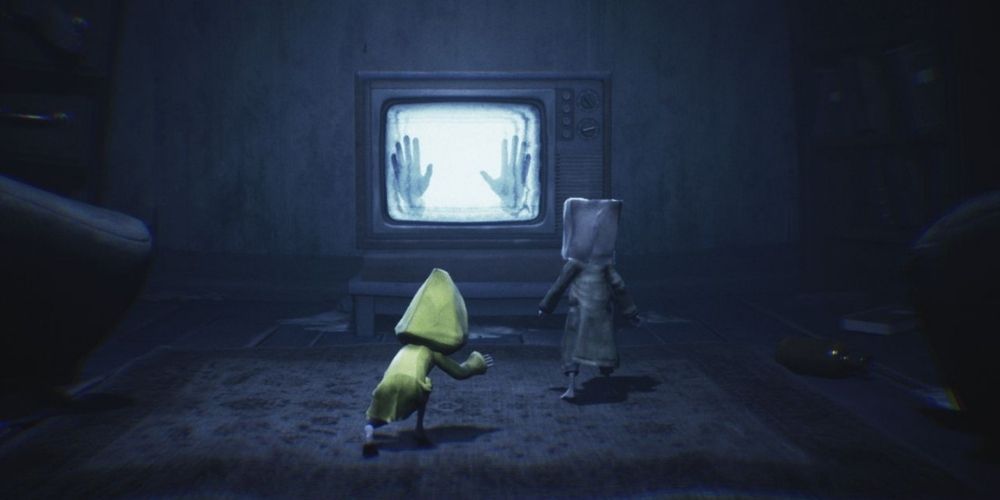
Little Nightmares 2 builds the entire theme of escapism around TVs. The message behind TVs and escapism is a mirror to society, and a way to brainwash the residents of Pale City. Each resident on the street is faceless and drawn to all TVs. They're also a way to show Mono's connection to the TVs and ultimately Thin Man, whose powers are used to help brainwash everyone in the city.
Every person finds different meanings behind the TVs in the game. Some revolve around brainwashing, others around communication, and some around propaganda and the all-seeing eye, but no one will truly know until further games share the secret.
4 Combat
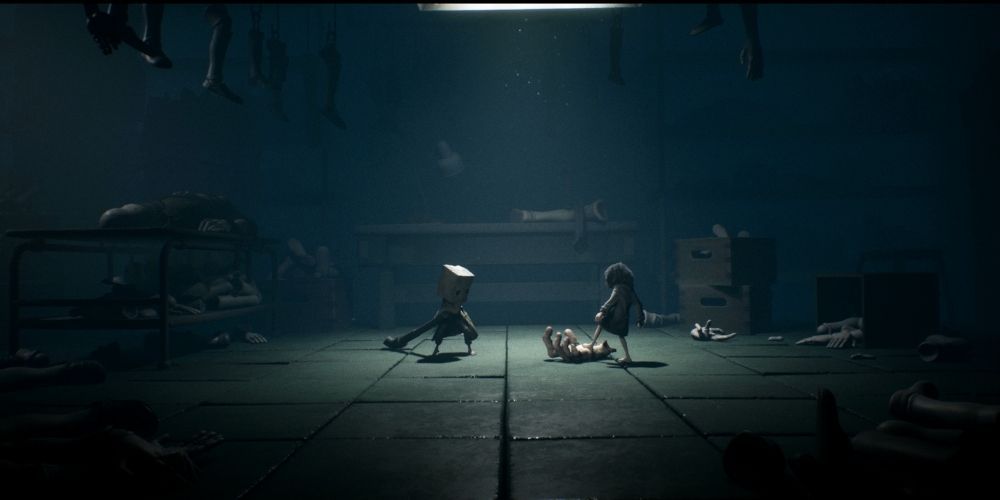
Little Nightmares 2 is much more combat-oriented than the first game. But one thing a lot of people are starting to realize is that Six never uses tools to fight. Except for when helping Mono shoot the shotgun, she never picks up a hammer.
RELATED: Little Nightmares 2: All Of The Enemies In The Game, Ranked By Their Creep Factor
One infamous scene involving this is when she kills a porcelain child with her own hands. While Mono gladly uses tools and traps to fight, Six leaps onto the child and breaks its head with her hands. Then she lingers ominously for a moment, looking at her hands as if realization hits her. This is the first moment of raw, exaggerated aggression from Six, and it seems like she didn't mind, hinting that she's already ascending towards madness.
3 Actual Humans
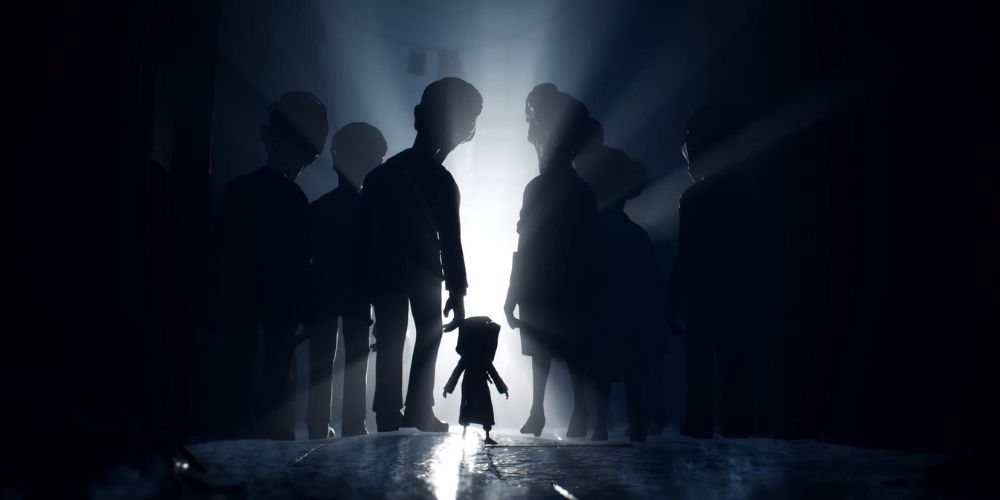
In the Little Nightmares universe, there are seemingly no normal human beings. But in Little Nightmares 2, in the area of The Doctor, players can see actual humans under blankets, and human-sized body parts. Also, in The Teacher's office, in the jars, it seems to be human body parts as part of a biology lesson maybe.
So this might mean that humans are, or where a part of this universe, or maybe the monsters are actually humans, they've just deformed because of the influence of The Eye.
2 Six's Future
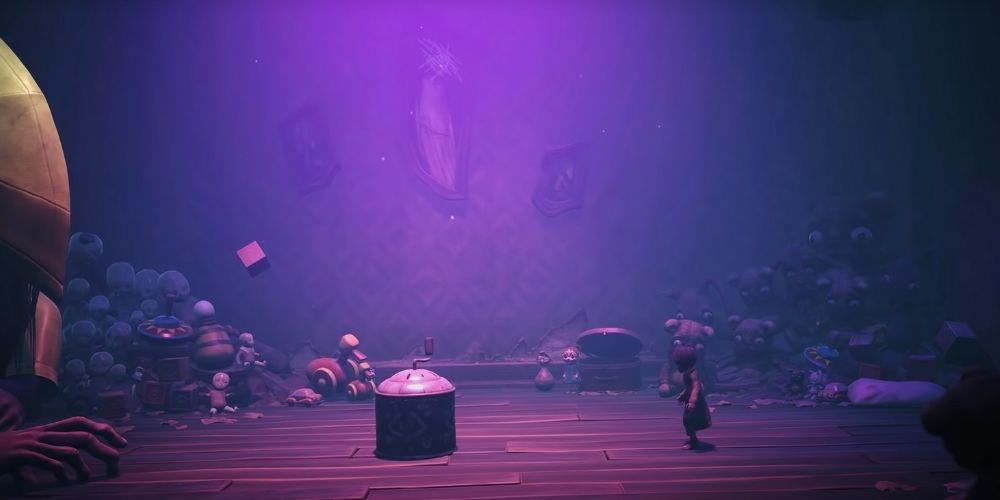
Little Nightmare 2 cleverly uses the information in its predecessor to tease the audience with some new data. There are hints to the past and present, putting the game into a timeline, but also, in the Tower, the past present, and future seems to intertwine.
At the beginning of the game, players see drawings made by Six on the walls of her prison in The Hunter's house. From right to left, this puts happenings in chronological order, starting with the death of the little girl in the yellow raincoat in Tiny Little Nightmares, continuing with a blank space (the present), and ending with the dead Geisha. But in the Tower, there's a glimpse of the future as well. Behind Giant Six, there are three portraits: The first is of young Six, the second of the dead Lady, and the third of a distorted monster. So maybe the game is hinting that if nothing changes, Six is looking at a grim future just like Mono.
1 Six And Mono
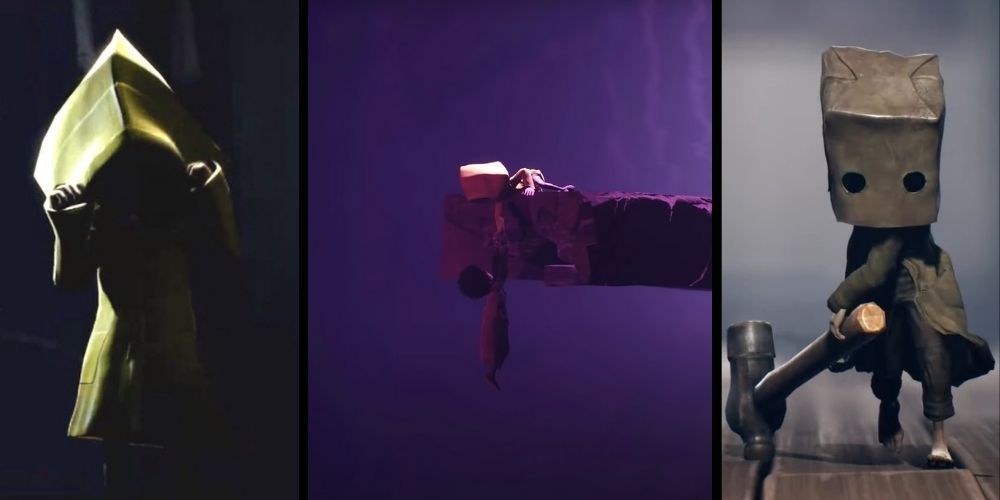
The names of the pivotal characters have a very important message. These speculations have not yet been proven, but the meaning of the names is loud and clean. Mono means "one, only, or single." This could refer to his position in the Pale City as the Thin Man. He's irreplaceable, a key element to the horrible reality.
While running towards the door in the TV, the number six is seen on it. This proves that not only is Mono a key story in the life of Six, but the other way around. Six is a catalyst for the creation of the Thin Man. Six is, of course, also a number, which could refer to the number of her kind or the number of times this loop has been completed.

